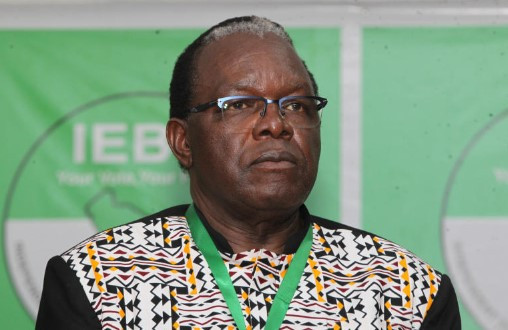- Details
- East Africa
- 980
IEBC commissioner Justus Nyang’aya during a media briefing. [Jonah Onyango, Standard]
One of the four Independent Electoral and Boundaries Commission (IEBC) commissioners who disowned the presidential tally announced by chair Wafula Chebukati has revealed details that led to their objection.
In his response to Raila Odinga and Martha Karua’s petition, commissioner Justus Nyang’aya claimed that a foreigner identified as Gudino Omor and three IEBC staff interfered with the commission’s server and forms 34A, changing the results.
“That I am aware that a foreigner by the name Gudino Omor was able to access the commission’s server using user ID “O” and to pull down results that had been uploaded from the polling stations and later upload fresh results,” Nyang’aya stated in his response.
The commissioner further claimed that Omor had gained access to the server from June 1, 2022, and stayed till after the declaration of the final tally.
Nyang’aya also claims that the foreigner’s logs can be easily traced, up from when he accessed the server, when he was active and inactive, and his goings-on in the server.
He has also named three IEBC staff; Abdidahir Maalim, Moses Sunkuli and Gideon Balang as individuals who accessed the commission’s servers, pulled down some uploaded results, and subsequently uploaded others.
“These are the same officers who were helping the second respondent to unilaterally process the results, that were subsequently declared by the second respondent,” the commissioner claimed.
He also revealed that there was evidence of the logs obtained from the agency’s server showing the IEBC staff interfering with data stored on the server.
He further claimed that changes had been made on Forms 34B after being previously pulled down and uploaded afresh.
In their petition, Azimio-One Kenya leaders Odinga and Karua have raised a myriad of issues including claims that forms 34A obtained at the polling stations were hijacked and altered before being uploaded to the IEBC portal.
Odinga said that his votes were reduced in William Ruto’s Bomet and Kiambu counties strongholds. In his response to the presidential petition Friday, President-elect William Ruto said the election was free and fair, and that Raila Odinga “is known for repeatedly rejecting poll outcome”






